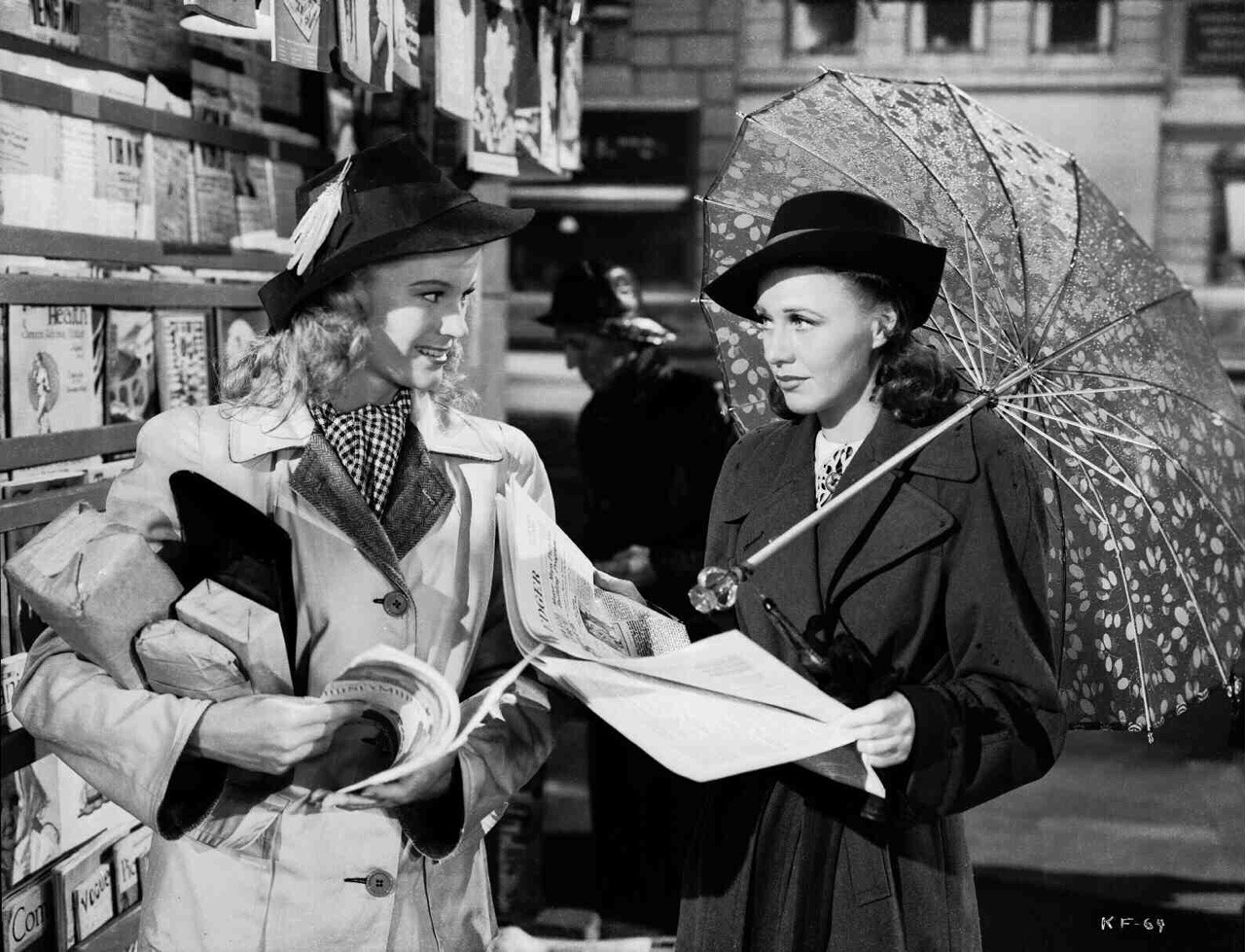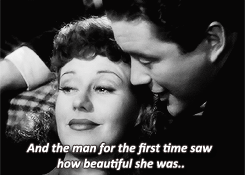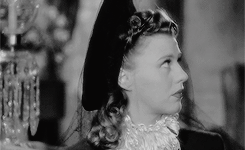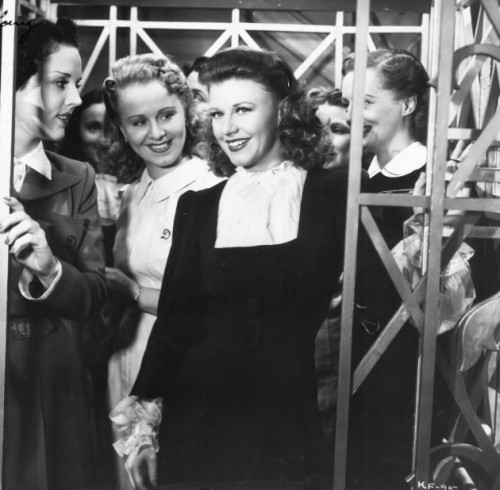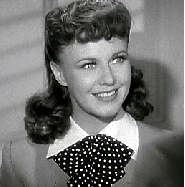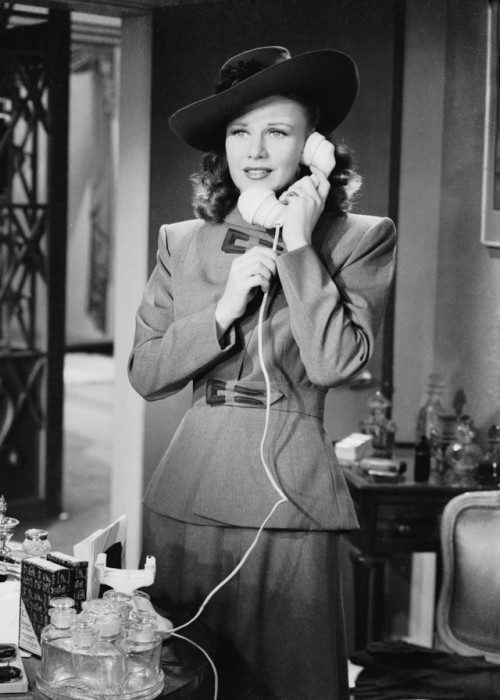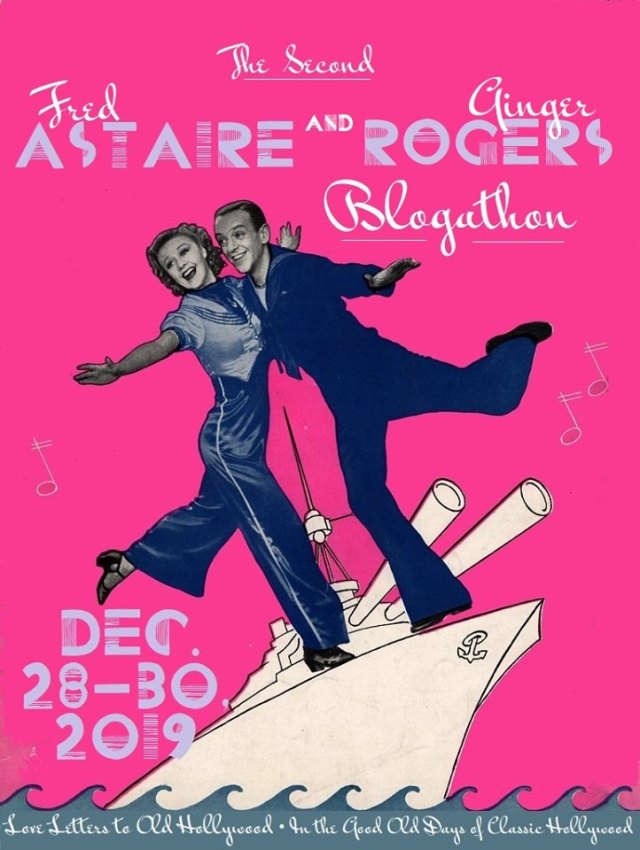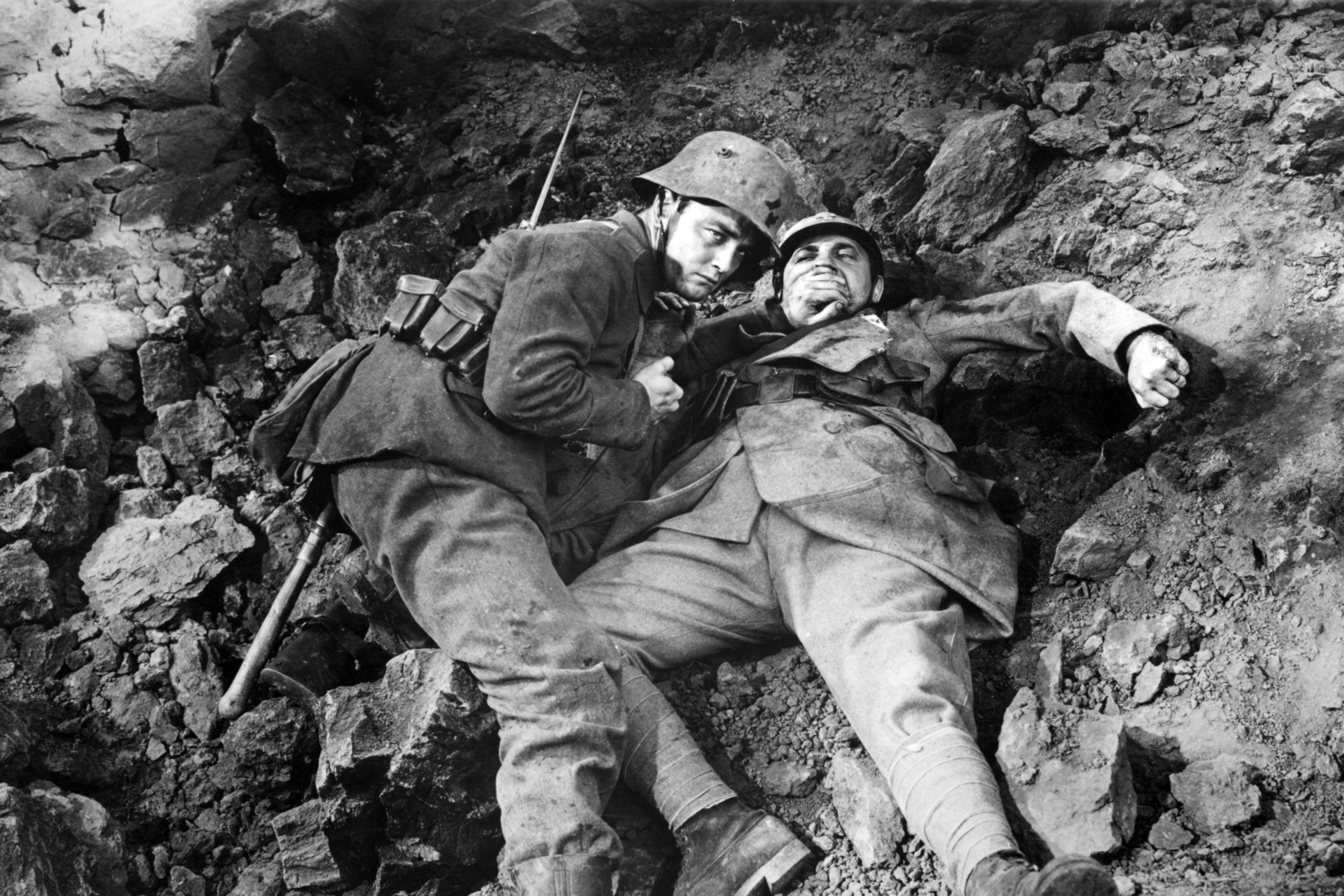O que te
faz querer ver um filme? É o elenco, o diretor ou a sinopse? Você tem uma lista
de filmes para assistir? Você se planeja com antecedência ou assiste a qualquer
coisa que encontrar na TV ou no streaming? Você se importa com os prêmios que
um filme ganhou ou isso é irrelevante? Estou perguntando porque há muitos,
muitos filmes para ver, e algum critério deve ser aplicado para que possamos
escolher quais filmes ver e quais deixar passar. “Kitty Foyle”, de 1940, por
exemplo, parecia digno de ser visto por ter trazido a única indicação ao Oscar
de Ginger Rogers... e ela ganhou o Oscar! E, de fato, “Kitty Foyle” me fez
refletir bastante.
What makes you
want to watch a movie? Is it the cast, the director or the synopsis? Do you
have a watch list? Do you plan ahead or do you watch whatever is on TV or
streaming? Do you care if a film has won awards or isn’t it relevant for you? I’m
asking because there are many, many movies to see, and some criteria must be
applied for us to choose which ones to check and which ones to ignore. “Kitty
Foyle”, from 1940, for instance, seemed worth checking out because it brings
Ginger Roger’s only Oscar nomination… and she won that Oscar! And, indeed, “Kitty
Foyle” made me think a lot.
O começo
do filme é de doer: em uma breve sequência ambientada no começo do século XX, o
filme mostra uma jovem vivendo uma vida perfeita, completa com marido e filhos.
A mulher decide “descer de seu pedestal” e perder “privilégios” para conseguir
direitos iguais – isto é, poder votar e trabalhar fora de casa. Já dá para
perceber que o livro “Kitty Foyle” e o roteiro do filme foram escritos por
homens?
The beginning
of the film is cringe worthy: in a brief sequence set in the 1900s, the film
shows a girl living the perfect life, complete with husband and kids. The woman
decided to “climb down her pedestal” and lose her “privileges” in order to
achieve equal rights – that is, to be able to vote and join the workforce. Can
you see that the novel “Kitty Foyle” was written by a man, and so was the
screenplay?
Kitty (uma
Ginger Rogers morena) é uma jovem trabalhadora dos anos 40 tendo que escolher
entre dois pretendentes. Uma noite, após sair do trabalho, ela acompanha seu
namorado médico Mark (James Craig) até a casa de uma paciente. Lá ele ajuda no
parto de um bebê e, quando Kitty o ajuda e segura o bebê, ele a pede em
casamento. Ela aceita e ainda diz que se sente “tão completa” segurando aquele
bebê. Eles planejam se casar naquela mesma noite, mas quando Kitty chega à
pensão onde vive, ela encontra seu outro pretendente, Wyn (Dennis Morgan). Só há
um problema: Wyn quer ficar com ela, mas se recusa a se divorciar de sua
esposa.
Kitty (a
brunette Ginger Rogers) is a 1940s “white-collar girl” having to choose between
two beaus. One night, after leaving her work, she accompanies her doctor
boyfriend Mark (James Craig) to a patient's house. There he helps deliver a
baby and, when Kitty helps him and holds the baby, he proposes to her. She says
yes, and also says that she feels “so right” holding that baby. They plan to
get married that same night, but when Kitty arrives at the boarding house she
lives in, she finds her other beau, Wyn (Dennis Morgan). There is only a
problem: Wyn wants to be with her, but he won't divorce his wife.
Uma
sequência em flashback nos mostra que Kitty havia trabalhado para Wyn como
datilógrafa. Em um gesto que deveria ser romântico, mas que se parece mais com
assédio no trabalho, ele confessa seu amor por ela. E ela não conhece Mark em
circunstâncias mais convenientes: ele a ajuda quando ela acidentalmente dispara
o alarme da loja em que havia sido recém-contratada, e ele a chantageia para
que ela aceite sair com ele.
A flashback
sequence shows us that Kitty had worked for Wyn as a typist. In a move that
should be romantic but looks more like workplace harassment, he confesses he
loves her. And she doesn't meet Mark in more convenient circumstances either:
he helps her when she accidentally sounds the alarm from the store she has just
started working in and he humorously blackmails her to go on a date with him.
Há
momentos mais progressistas no filme. Em um deles, Kitty enfrenta a família
rica de Wyn, quando descobre que ele só poderia usar o dinheiro de sua herança
se ele e ela vivessem na casa da família. Quando ela protesta por “gente morta
poder ditar como Wyn vive sua vida”, nós quase nos esquecemos do discurso
datado do começo.
There are
more progressive moments in the film. In one of them, Kitty faces Wyn's rich
family, when learning that he would only use his inheritance money if he and she
lived in the family property. As she protests about how “dead people can say
how Wyn must live his life”, we almost forget about the dated speech from the
beginning.
O filme
também lida com gravidez fora do casamento, mas encontra uma maneira muito
convencional de rapidamente se livrar do assunto. Curiosamente, o livro era
muito mais controverso – ele era vendido como “a novela mais ousada sobre uma
mulher a ser escrita por um homem” – mas quase todos os temas controversos
foram excluídos do roteiro por causa do Código Hays. Mais uma vez, o Código arruinou
um filme – afinal, não podemos nos esquecer de que, na época, até a palavra “grávida”
era proibida no cinema.
The film also
deals with pregnancy out of wedlock, but it finds a very conventional way to
quickly erase the subject. Interestingly, the novel was much more controversial
– it was marketed as “the most daring novel ever written by a man about a
woman” – but nearly all controversial themes had to be excluded from the
screenplay due to the Hays Code. Once again, the Code has ruined a movie –
after all, let’s not forget that back in the day even the word “pregnant” was
forbidden in a film.
O título completo
do filme é: “Kitty Foyle – A história natural de uma mulher”. Isto é revelador, como se contentar-se com
menos, com o mais conveniente, fosse o destino de todas as mulheres. Eu costumo
dizer que se a poligamia fosse normalizada, 90% de todas as tramas de filmes
perderiam o sentido. Isso aconteceria aqui, onde Kitty tem de escolher entre um
homem que ela ama demais, mas com quem seu futuro é incerto, e um homem que ela
não aprecia muito, mas com quem seu futuro será seguro.
The full
title of the film is: “Kitty Foyle – The natural history of a woman”. This is revealing,
as if settling for less, for the most convenient, was the fate of all women. I
usually say that if polygamy was normalized, 90% of all film plots would stop
working. This would happen here, where Kitty needs to choose between a man she
loves deeply, but with whom her future is uncertain, and a man that she doesn’t
like so much, but with whom her future will be safe.
Gostar de coisas
antigas não significa ter valores antiquados. Eu não gostaria de ter nascido
nos anos 1930. Eu sei que, se eu tivesse nascido naquela época, minha chance de
ser uma mulher comum, dona de casa e mãe, seria muito maior do que minha chance
de ter sido uma mulher trabalhadora e independente. Eu acredito que meu ponto
de vista feminista é algo único que eu trago para minhas críticas, e tenho de
apontar detalhes antiquados em filmes como “Kitty Foyle” para que possamos
parar de romantizar a Era de Ouro do cinema como uma época melhor. Ela
certamente não foi melhor para todos – talvez apenas para os homens brancos e
heterossexuais, e é ótimo que nós, como sociedade, estejamos mudando isso.
Liking
vintage things does not mean having vintage values. I don't wish I was born in
the 1930s. I know that, if I was born back then, my chance of being a common
woman, housewife and mother, would be much bigger than my chance of being an
independent career woman. I believe that my feminist point of view is something
unique I add to my reviews, and I have to point out those dated details in
films like “Kitty Foyle” for us to sometimes stop romanticizing the Golden Age
of Film as a better time. It certainly wasn’t better for all – maybe only for
straight white man, and it’s so good that we, as a society, are changing this.
O roteiro
foi escrito por Dalton Trumbo, com ajuda de Donald Ogden Stewart, mas ele pouco
se parece com os melhores trabalhos destes grandes escritores. A história é
romântica e por vezes engraçada, mas não tem o charme de “A Princesa e o Plebeu”
(1953) de Trumbo e de “Núpcias de Escândalo” (1940) de Stewart.
The
screenplay was written by Dalton Trumbo with help from Donald Ogden Stewart,
but it hardly looks like the best works by those great writers. The story is
romantic and sometimes funny, but lacks the charm of Trumbo’s “Roman Holiday”
(1953) and Stewart’s “The Philadelphia Story” (1940).
Aliás,
Ginger ganhou o Oscar derrotando Katharine Hepburn, de “Núpcias de Escândalo” –
que havia se recusado a fazer “Kitty Foyle” – e outras indicadas cujas
performances parecem ter merecido mais o prêmio do que ela: Joan Fontaine em “Rebecca”
(1940) e a melhor de todas as indicadas, Bette Davis em “A Carta” (1940). Ah, e
devemos nos lembrar de que Vivien Leigh sequer foi indicada por sua performance
arrebatadora em “A Ponte de Waterloo” (1940)!
By the way,
Ginger won her Oscar over Katharine Hepburn, from “The Philadelphia Story” –
who had refused to star in “Kitty Foyle” – and other nominees whose
performances seem more deserving than hers: Joan Fontaine in “Rebecca” (1940)
and, the best of the bunch, Bette Davis in “The Letter”. Oh, and we must
remember that Vivien Leigh wasn’t even nominated for her heartbreaking
performance in “Waterloo Bridge” (1940)!
Ginger
também lançou moda dentro e for a do filme. Do filme veio o “vestido Kitty
Foyle”, um vestido escuro com colarinho e abotoadura brancos. Fora do filme, no
Oscar, Ginger usou um vestido que causou frisson: com a parte de cima parecendo
uma lingerie, o vestido de seda cinza foi considerado ousado demais. Mesmo que
Ginger tenha seguido a sugestão de usar “tons sérios” por causa da guerra que
estava em curso, foi a transparência do vestido que gerou críticas.
Ginger also
created fashion trends in and outside the film. From the film came the “Kitty
Foyle dress”, a dark dress with white collar and cuffs. Outside the film, at
the Academy Awards, Ginger wore a dress that caused a stir: with the top part
looking like a negligee, the grey silk dress was considered too daring.
Although Ginger kept with the suggestion of wearing “muted tones” because of
the ongoing war, it was the transparency of her dress that brought criticism.
“Kitty Foyle” é ruim? Não. É datado? Sim. Com um discurso de que o destino da mulher
trabalhadora ainda é o casamento, o filme tem as qualidades e os defeitos que
também encontramos nos melodramas de Douglas Srik, e nos anos 1950 Sirk
provavelmente teria remodelado a história para torná-la mais interessante. Afinal,
se havia alguém na Velha Hollywood que conhecia a “história natural de uma
mulher”, este alguém era Sirk.
Is “Kitty
Foyle” bad? No. Is it dated? Yes. With the speech about how the fate of the “white-collar
girl” is still marriage, it has the positive and negative characteristics we
also find in Douglas Sirk’s melodramas, and in the 1950s Sirk would probably
have revamped the story to make it more interesting. After all, if there was
someone in the Old Hollywood who knew about “the natural history of a woman”,
this someone was Sirk.
This is my
contribution to the Second Fred Astaire and Ginger Rogers blogathon, hosted by
Michaela and Crystal at Love Letters to Old Hollywood and In the Good Old Days of Classic Hollywood.
